
13 things for which Google gives thanks
U.S. Thanksgiving Day comes late this year for retailers, but makes more time for Google to count its blessings and to offer gratitude for them. Oh, they are bountiful, and there is still another month of them to come. The year 2013 will be remembered as one of the finest in Google history. The company has so much to be thankful for, I could have trebled the list.
But for succinctness, I whittle down to those things that mean more than others or that otherwise would be overlooked in the typical yearly review. The list goes from that for which Google should be least thankful to most. Gobble. Gobble.
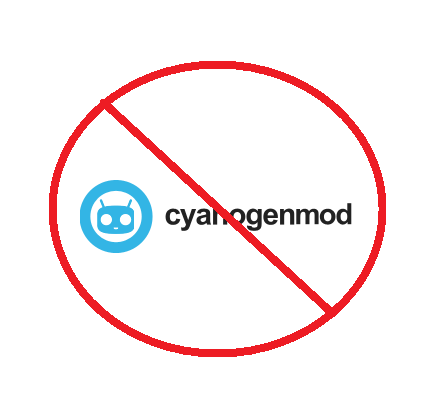
CyanogenMod Installer disappears from Google Play -- that's a good thing
When it comes to the Android custom ROM community, CyanogenMod is considered by many to be the holy grail. If your smartphone or tablet receives official support for the ROM, you can be assured of regular updates. However, for many, the stock Android experience has now matured to a point where custom ROMs are no longer needed.
Despite this (or maybe because of this), CyanogenMod decided to monetize its ROM and form a company. To easier facilitate the process of installing it, the company released a helper app on the Play Store. Yesterday, the app was pulled from the store -- and that's a good thing.

Touchscreen notebooks increase in popularity -- but why? Why? WHY?!
We're all used to getting touchy-feely with our phones and tablets, but it's only in the past few months that touchscreen laptops have really gained any ground. A report by NPD DisplaySearch states that by the end of 2013, touchscreen devices will account for 11 percent of all notebook shipments -- that's around 19.8 million notebooks with touchscreens -- and there has been a steady increase in market share since the beginning of the year.
Richard Shim, senior analyst at NPD DisplaySearch explains that "Premium pricing and a lack of compelling uses for touch screens on notebooks continue to hinder adoption", but goes on to say that "as touch interfaces become increasingly common across all mobile devices, it is just a matter of time before the technology also becomes more prevalent in notebooks".
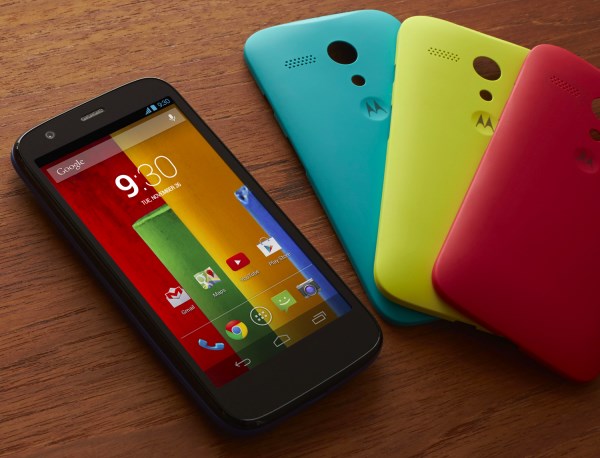
Motorola Moto G available to buy now in US for just $179
Motorola's answer to Apple's iPhone 5c and Google's Nexus 5, the Moto G, is available to order now, starting at $179. Despite coming in at just "one third of the price of current high-end phones", this is an entry-level smartphone that still manages to pack a punch. There's a 4.5-inch display and a quad-core Qualcomm Snapdragon 400 processor, and Motorola is claiming all-day battery life. It is the GSM version that is available now, and in January it will be possible to buy the CDMA model in the US as well.
It has already been launched in a number of territories including Brazil, Mexico, Chile, Argentina, Peru and parts of Europe, but now the US is getting some Motorola loving too. Buy direct from Motorola and the handset is free from contract, has no SIM lock, and has an unlockable bootloader -- a tweaker's dream! At 1280 by 720 HD, 329 ppi, the Moto G's screen is above and beyond what you might expect to find on a handset around this price.

Futuremark delists 'suspicous' HTC and Samsung handsets from 3DMark benchmarking app
A total of six Android devices from Samsung and HTC have been delisted by Futuremark after suspicions were raised about their performance in 3DMark benchmarks. Although no specific details are given about why the handsets were removed, concerns surrounded the performance of particular phones.
It comes after Samsung code appeared to detect the presence of benchmarking software and seemingly increased GPU frequency to achieve higher results. A new version of the Android app implements the delistings.
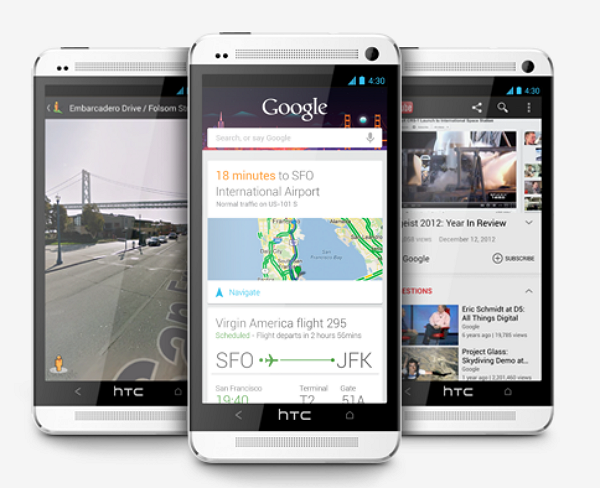
HTC One Google Play edition now receiving the Android 4.4 KitKat upgrade
As some of you may know, Taiwanese maker HTC is among the first Android vendors to reveal its KitKat upgrade plans, shortly after Google launched the new mobile operating system. The company's US arm announced, in mid-November, that the code for the Google Play edition of the One is finished and sent to the search giant to commence the roll-out.
A little over a week after, the HTC One Google Play edition is now finally receiving Android 4.4 KitKat via an over-the-air update (hit the link to download the file). The OTA file comes in at a hefty 305 MB and will upgrade your device to build KRT16S, which is the latest one available as of today (the same build version was just rolled-out to some Nexus devices in the first post-KitKat update).
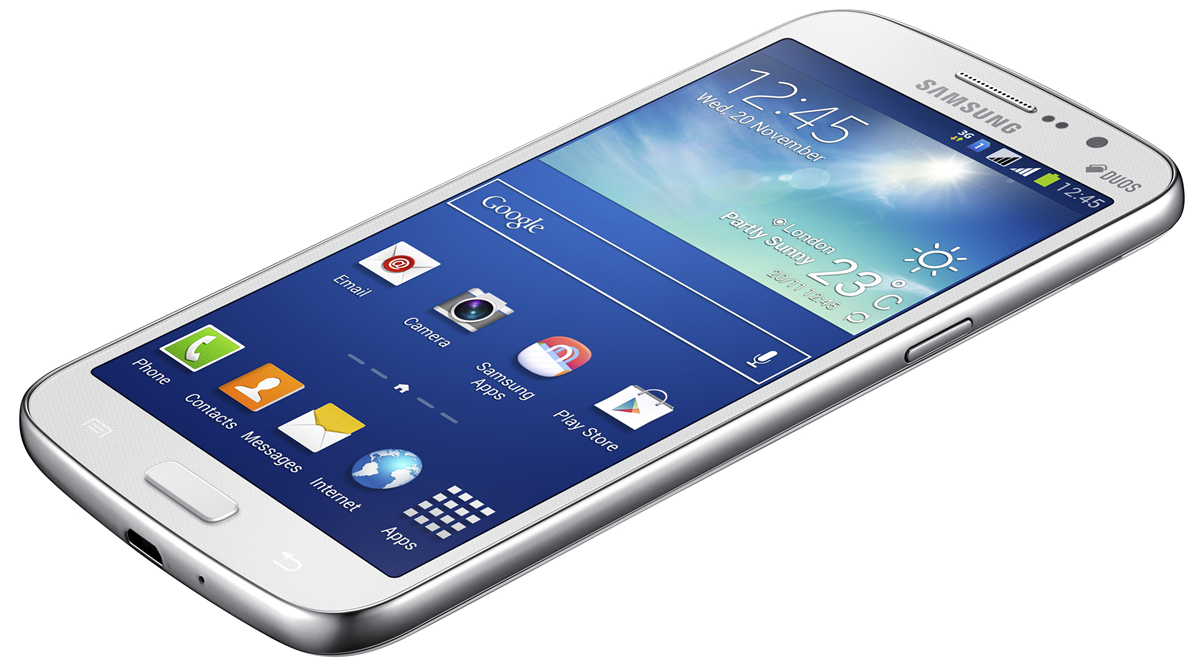
Samsung Galaxy Grand 2 -- phablet size, mid-range specs
Samsung has reshaped the smartphone market with the Galaxy Note series by giving large-screened handsets mass-market appeal. The South Korean maker has sold tens of millions of its stylus-equipped phablets and other similar devices, with the recipe also being applied by rival companies, such as HTC, LG, Nokia or Sony, seeking to make great strides of their own. After all, consumers love phablets as this segment accounted for 21 percent of all smartphone shipments in Q3 2013, according to research firm IDC.
And, today, Samsung introduces a new phablet in its lineup, called Galaxy Grand 2. The device is the successor of the Galaxy Grand, which was introduced in mid-December 2012 albeit with a smaller, 5-inch display. So how big is the new model?

Check your Android apps for privacy risks with Clueful
You’ve found an essential Android app. You click "Install", wanting to check it out immediately. And so, let’s be realistic, you’re probably not going to spend a long time reviewing the app permissions, and thinking about whether it really needs to "send SMS", or not. Much easier to just click "Accept" and give it a try.
Skipping basic security checks can catch up with you later, of course, but install Bitdefender’s Clueful and this doesn’t have to be such an issue. This free app warns you of privacy risks whenever you install something new, and can produce a detailed report on your system whenever you like.
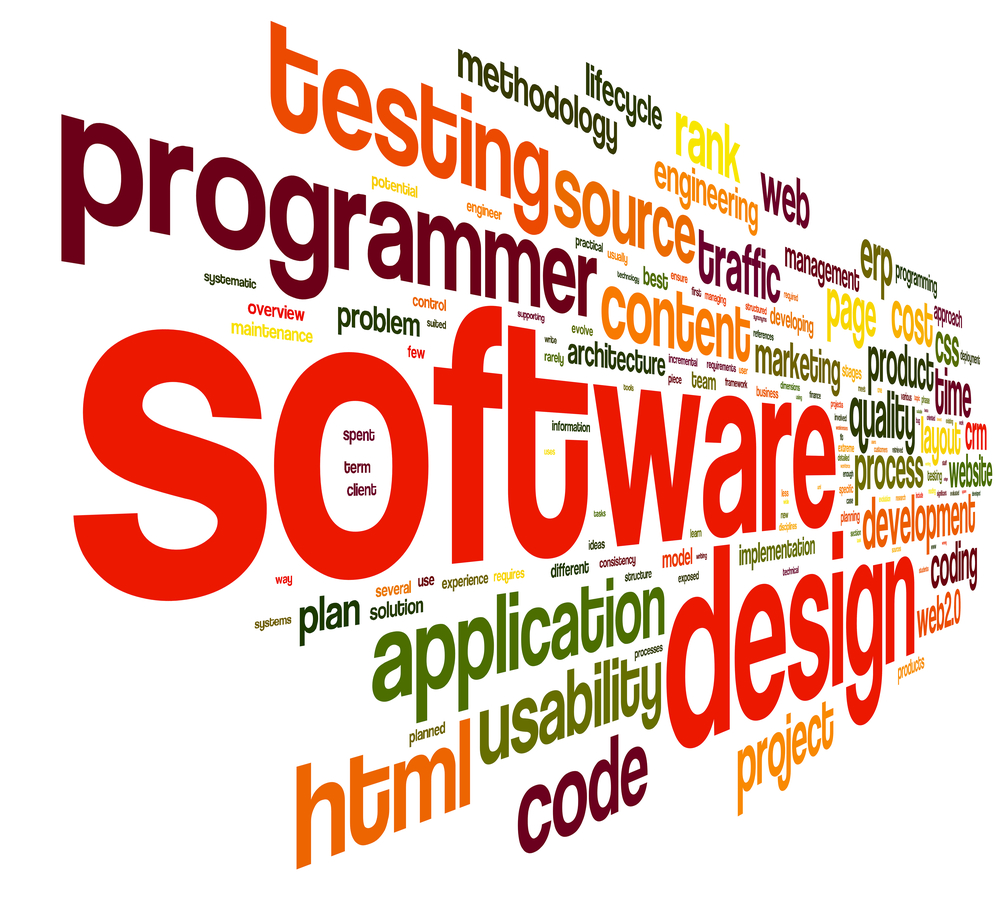
How Android and iOS developers see Windows Phone [Q&A]
According to a new survey from Strategy Analytics, Windows Phone development is expected to ramp up significantly in 2014. Of the 1,600 interviewed devs, 32 percent plan to support the tiled smartphone operating system next year, a number that is twice as large compared to the current statistics for 2013. Android and iOS continue to rank as the top two picks, followed by HTML5 in third place and Windows Phone in fourth.
This is certainly good news for both Microsoft and Windows Phone users. The platform should receive more quality apps, an area where it is sorely lacking in numbers, and, as a result, gain more followers in the coming years. The third ecosystem dream, as Strategy Analytics says, is becoming real. The only thing that stands in the way is the developers' commitment.
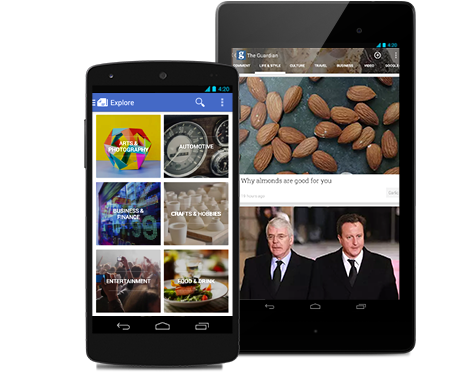
Hands on with Google Play Newsstand
Google has merged two of its reading apps into one with the release of Google Play Newsstand 3.0. The app brings together the magazine subscriptions from its old Google Play Magazines app with the news-aggregating Currents app, retiring both in the process.
The new app aims to provide a one-stop shop not just for magazines and newspapers -- over 1,900 different publications are currently supported -- but also allows users to add their own news sources too using RSS feeds.

Coin -- the only card you'll need in your wallet
Take a look at your wallet. How many debit cards, credit cards and loyalty cards do you have? If it's anything like mine it is probably bursting at the seams with an inch or more of plastic cards. Reach the checkout in a store and you may well have ended up red-faced as you rummage for the right payment and loyalty card. With Coin, all of this could come to an end. The idea of a catch-all replacement that combines multiple cards into one is not new, but thus far solutions have taken the form of mobile apps. Coin is different -- this is a real card that acts as many.
Coins have a tendency to weigh down your pockets, but this Coin is a single lightweight unit. The card features an integrated display which you can use to view the last four digits of a stored card along with the expiration data and CVV so you, and the person you hand the card to, knows which of your stored cards you are using. You may well have used a mobile app that replaces loyalty cards, and Coin is taking this idea to the next level.
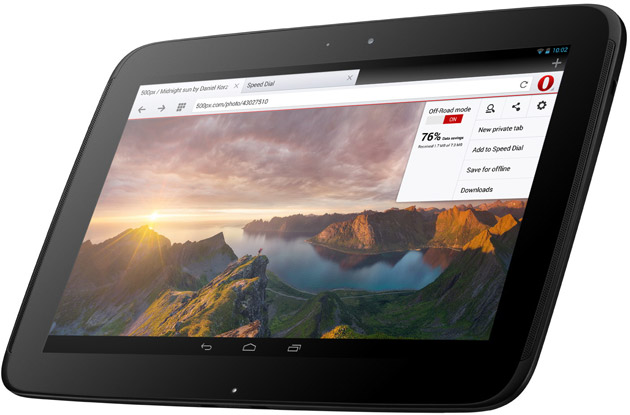
Opera 18 for Android gets a tablet-oriented revamp
Opera Software has released Opera 18 for Android, a major redesign with every aspect of the browser interface being optimized for larger Android tablets.
"We poured a great deal of thought into the Opera for Android tablet version," says Johan Schön, SVP for Mobile Consumer Browsers, Opera Software. "The size of devices and mindset of users make the tablet very different from its smaller cousin, the smartphone, and we have to respect that. In Opera 18 for Android, we have spent hours and hours tweaking, and fiddling with the placement of, even the most minute detail, just to get that top tablet feel".

Google braves Sauron, takes Chrome to Middle Earth
Orcs, trolls, balrogs, ring wraiths, dark lords -- it's a dangerous world out there, especially if you are a hobbit. Despite these dangers, Google has elected to brave Middle Earth, taking its cross-platform browser along for protection. The company does so in the name of improving the web experience, specifically for mobile devices.
Chrome for Android now supports technologies ranging from WebGL and WebRT to Web Audio, and Google is anxious to show this off. It's doing so through a new interactive experience, based on the timeless J.R.R. Tolkien books and award-winning Peter Jackson movies -- The Lord of the Rings and The Hobbit.
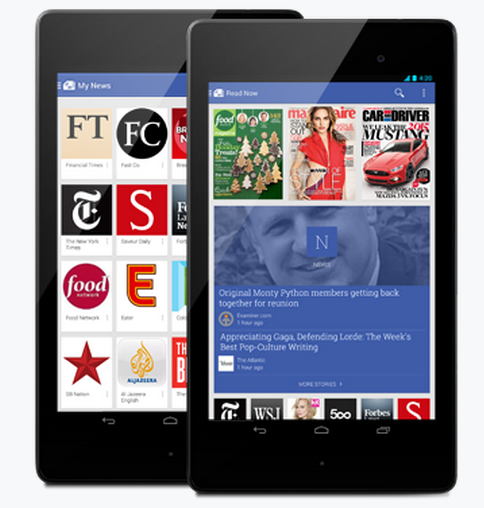
Extra, extra -- Google Play gets a Newsstand, read all about it
Google's Android platform is on fire these days, with a new operating system, a latest and greatest smartphone, in the form of the Nexus 5 and rumors of an updated 10-inch tablet coming soon. However, the company is also known for killing off products, which makes today's announcement of a newsreader for Android all the more interesting.
Newsstand, according to the search giant, "puts the news you care about most front and center and presents stories that interest you based on your tastes". However, before you jump the gun and think this is Reader reincarnated, know that the service is a bit different.
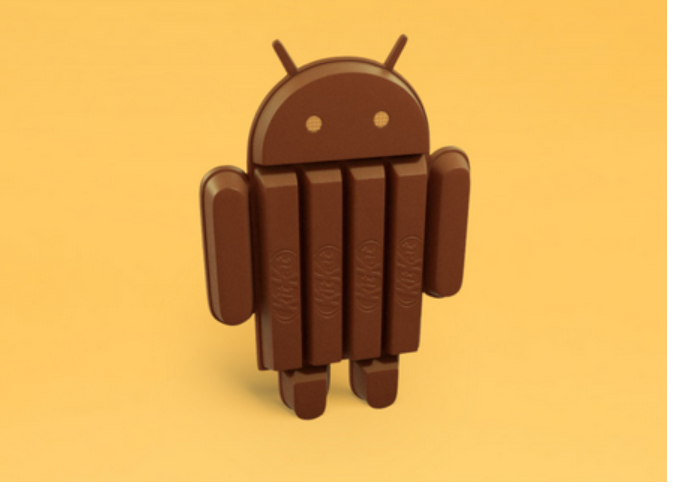
HTC and Motorola expand Android 4.4 KitKat upgrade plans
Of all top Android manufacturers, HTC and Motorola seem to be among the least likely players to release timely Android upgrades. Prior to the One and Moto X neither of the two has actually been quick to announce immediate roll-outs nor reassuring plans to do so for the foreseeable future. Yet here we are today with both HTC and Motorola doing just that. Interesting how their strategies have changed.
HTC's US arm has announced that the North American models of the HTC One will receive the Android 4.4 KitKat upgrade by the end of January 2014. This estimate also includes the Verizon version, which has yet to even get Android 4.3 Jelly Bean. HTC, however, says that this situation will not affect its plans.
